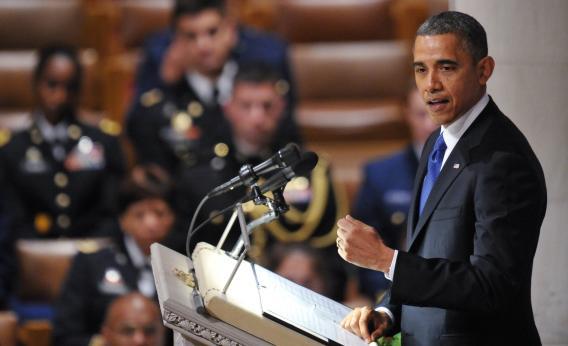A subtle element of the “fiscal cliff” negotiations is that Barack Obama wants to cut Social Security benefits, but only wants to do so as part of a deal with Republicans in which lower Social Security benefits are a concession made to Republicans. This is a longstanding position of his but it’s very subtle. See pages 215-216 of The Audacity of Hope:
Just as government policies can boost workers’ wages without hurting the competitiveness of U.S. firms, so can we strengthen their ability to retire with dignity. We should start with a commitment to preserve Social Security’s essential character and shore up its solvency. The problems with the Social Security trust fund are real but manageable. In 1983, when facing a similar problem, Ronald Reagan and House Speaker Tip O’Neill got otgether and shaped a bipartisan plan that stabilized the system for the next sixty years. There’s no reason we can’t do the same today.
Obviously it’s a bit strange to say that a 1983 bill stabilized Social Security “for the next sixty years” but also be standing around a mere 22 years later talking about “the problems with the Social Security trust fund.” But the key point is that while on a lot of issues Obama is happy to just lay down what he thinks should be done policy-wise, on Social Security he alludes to a past bipartisan deal to raise taxes and cut benefits and suggests a similar process rather than a desired outcome. So when Democrats ran the show he didn’t try to move on Social Security. But with Republicans in control of the House, the stage is set for the preferred otucome of cutting benefits in the context of a bipartisan deal.
By the same token, debating Mitt Romney the president took the extraordinary step for a Democrat of saying “I suspect that on Social Security we’ve got a somewhat similar position,” outlining his determination to keep the basic structure of the program intact, and then endorsing “tweaks” to the benefits.
